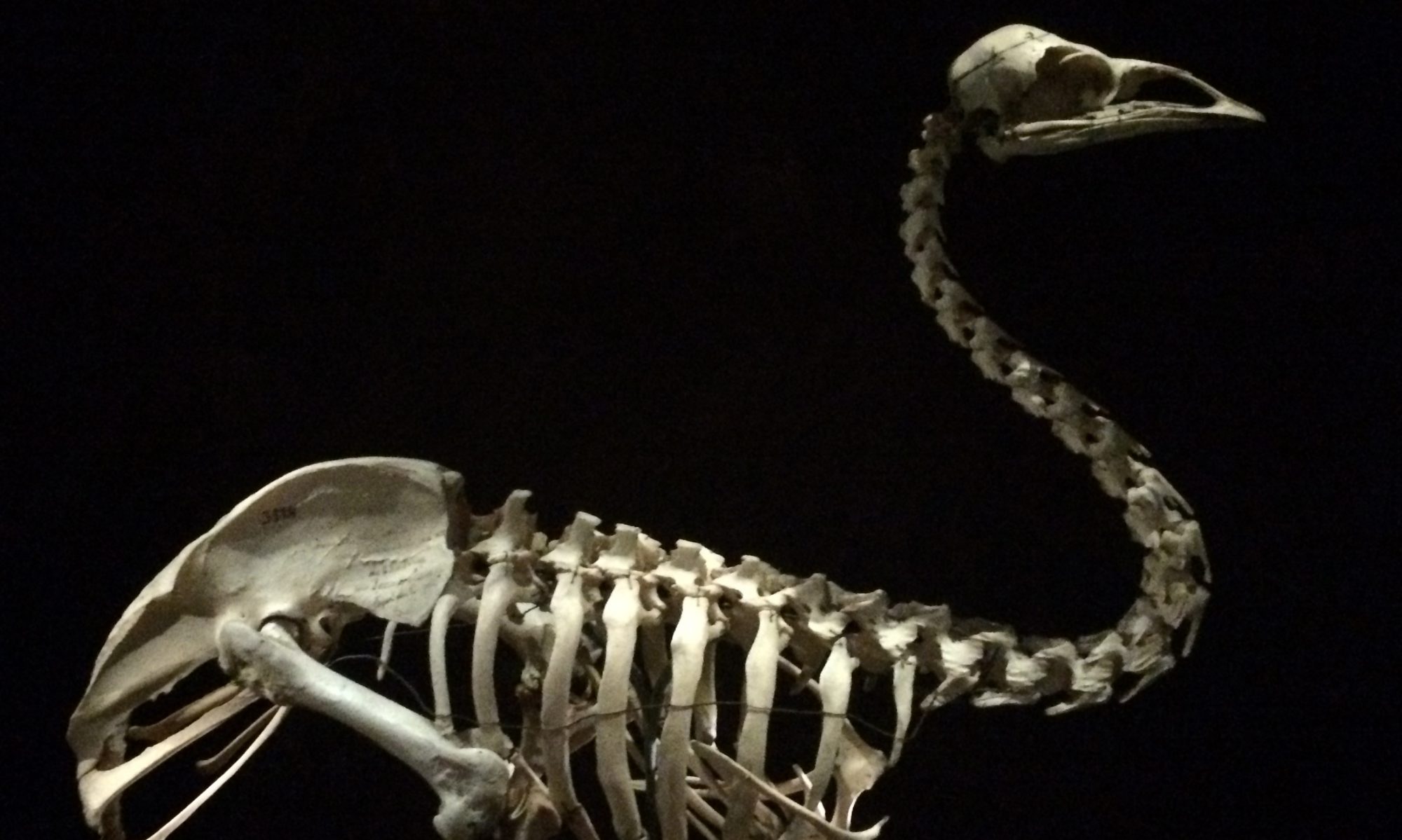The people and institutions involved in the Remembering Extinction program and its subprojects are:
Dolly Jørgensen, Professor of History, University of Stavanger (Norway), is the Principal Investigator for the program. She is an environmental historian with a specific interest in exploring the meeting points of human-animal-technology. She has researched historical human-animal relations in reintroduction, rewilding, and deextinction initiatives through a combination of history of technology, environmental history, Science and Technology Studies, and animal history.
Stefan Skrimshire, Lecturer of Theology and Religious Studies at University of Leeds (UK), is leading the Work Package “Thinking Through Extinction: cultural heritage as stimulus for exploring philosophies of extinction” in the “Extinction as Cultural Heritage?” project. His current research focuses on theological and philosophical perspectives on how death is imagined, narrated, resisted, denied, mourned, and celebrated at the planetary level because of species extinction (including the human species) and engagement with the Anthropocene. He is currently preparing a monograph on Christian eschatology and the ethics of extinction. He is the Network Lead for the “Imagining and Representing Species Extinction” White Rose Studentship network, which has three PhD students (2017-2020) investigating cultural aspects of extinction.
Monika Bakke, Associate Professor of Philosophy, Adam Mickiewicz University, Poznań (Poland), is leading the Work Package “Biodiversity of Livable City: extinction and survival of species as cultural heritage” in the “Extinction as Cultural Heritage?” project. She writes on contemporary art and aesthetics, with a particular focus on posthumanist, gender and cross-species perspectives. She has been investigating contemporary art practices in deep time environments, with special attention on minerals and plants as often overlooked elements in developing a post-anthropocentric worldview.
Libby Robin, Professor, Australian National University and National Museum of Australia (Australia), is on the Advisory Board. Her current research focuses on responses to animals and plants that exhibit unruly behaviour, the use of expertise in environmental change, and museum engagement with the Anthropocene. She is a prolific senior scholar who regularly crosses disciplinary backgrounds to work with natural scientists, social scientists, museum practitioners, and artists. She has significant experience with museum work, including as a curator on the first environmental history exhibit at the National Museum of Australia.
Karen Rader, Professor, Virginia Commonwealth University (USA), is on the Advisory Board. She is a historian specialising in human-animal studies from a Science and Technology Studies perspective. She has published extensively on animals in museums contexts, including the award-winning book Life on Display: Revolutionizing U.S. Museums of Science and Natural History in the Twentieth Century (2015). She has previously been a guest professor at University of Oslo.
Gitte Westergaard, PhD student, University of Stavanger, February 2019-January 2023. She will be working on her PhD dissertation, tentatively titled An Exploration of Island Extinction through Museum Collections: Towards a Decolonization of Animal Remains through January 2023. Her case studies include endangered lemurs collected by missionaries to Madagascar, tortoises considered the last of their kind on display, cultural artefacts made out of feathers from the extinct Hawaiian ʻōʻō bird, and endemic and invasive rats in the Caribbean. Gitte earned her Masters degree in Sustainable Heritage Management from Aarhus University in 2018.
Verity Burke, Postdoctoral research fellow, University of Stavanger, October 2019-September 2021. She has a PhD in English Literature from University of Reading (2018). She is currently a postdoc on the AHRC-funded project “Narrativising Dinosaurs: Science and Popular Culture from 1850 – present” at University of Birmingham. She will be focusing her studies for this project on two exhibits at the Natural History Museum (London).
Elvarheim Museum, Åmli (Norway), is involved in both “Beyond dodos and dinosaurs” and “Extinction as Cultural Heritage?” through the development of an exhibit on the reintroduction of beavers from Åmli to Sweden and the collection of oral histories related to beaver relocation. Elvarheim a small local museum specialising in hunting and fishing. It also features cultural history special exhibits each summer. It is part of the Aust-Agder Museum and Archive conglomerate which operates several museums in a large, but relatively sparsely populated, county in southeastern Norway. The museum involvement is coordinated by Tonje Ramse Trædal.
Manchester Museum, Manchester (UK), will host a 2-day colloquium to explore the the role of cultural heritage archives and artefacts of a physically changing environment, including that which is ‘lost’ or ‘endangered’ as part of “Extinction as Cultural Heritage?” Manchester Museum is the largest university museum in the UK, attracting over 460,000 visitors each year. The collection includes both cultural and natural history, ranging from ancient Egyptian mummies to live critically endangered frogs in a breeding program. One of the museum’s missions is ‘working towards a sustainable world’. The museum involvement is coordinated by Henry McGhie.
Municipal Gallery Arsenal, Poznań (Poland), will host city walk-talks and facilitate the creation of art works by invited contributing artists as part of “Extinction as Cultural Heritage?” Arsenal is a dynamic contemporary art gallery that organizes art exhibitions, cultural and educational activities and workshops, and commissions new art works. The gallery’s objectives include engendering critical thinking, promoting attitudes of active participation in culture, exchanging ideas with other cultural institutions, and promoting contemporary art from Poland and abroad. The museum involvement is coordinated by Marek Wasilewski.
